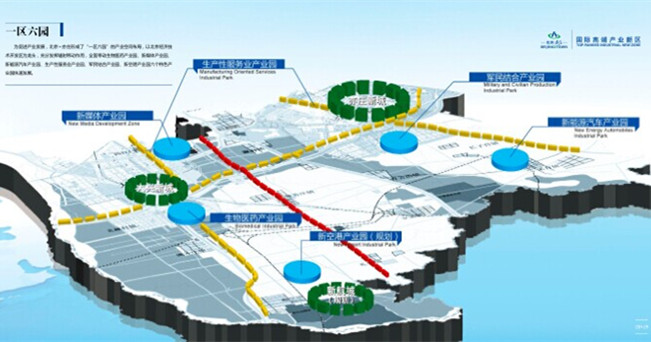'Proptech' follows fintech's footsteps
( China Daily )
Technology adoption to help create unicorns in China's real estate sector
In the past few years, technology has revolutionized the financial sector, and as fintech continues to swell into more sectors, the real estate industry will welcome its own version, known as proptech, according to a senior executive from international real estate consultancy company Jones Lang LaSalle.
"(In) the future, when we look at China, when we see how the fintech industry in China has revolutionized the… financial sector, we think that proptech will catch up very quickly for a whole load of reasons and the way we look at technology in real estate," Anthony Couse, Asia-Pacific chief executive officer at JLL, told China Daily.
Perhaps the most prominent example of fintech on life in China is the ubiquity of mobile payment. The Better Than Cash Alliance reported earlier this year that Alipay and WeChat Pay enabled $2.9 trillion in Chinese digital payments in 2016, a 20-fold increase in the past four years.
The report predicted that up to 12 percent of all retail sales will be settled through mobile payments by 2020(up from 8 percent in 2015), other online payments will account for 16 percent (up from 9 percent in 2015), about 30 percent will be by cash (down from 61 percent in 2010) and debit or credit card payments will account for 41 percent.
"The whole thing of tech in China is such an interesting story, so we're very passionate about pushing tech into real estate … we think we have a duty to drive change into the real estate sector," Couse said.
"Considering Chinese people's aspiration in owning their own real estate … nearly everyone is still piling into real estate. If you look at the millennials of China, 95 percent of them still say, 'I want to buy a house.'"
A recent HSBC study finds that 70 percent of Chinese millennials have their own property, with 91 percent planning to buy a house in the next five years, a greater percentage than their counterparts in countries including Canada, France, the US and the UK.
The tech savviness of Chinese millennials and the country's emerging middle class are likely to make China a breeding ground for the first proptech unicorn, Couse suggested.
Already, in fact, Chinese residential property agencies Homelink and FangDD are among the most invested proptech companies in the world, Couse added.
Both Chinese e-commerce giants Alibaba Group Holding Ltd and JD.com Inc launched programs related to property and technology.
An online system for house rentals, or the smart home renting system, was launched by Alibaba and its home city government (Hangzhou of Zhejiang province) in August this year.
JD.com launched a new site on its online platform targeting property buyers in association with leading developers in October. The company planned to take steps to integrate online and offline real estate business by creating a one-stop service platform.
"One of the great things about China is that the government is willing to create ecosystems or incubators to promote the growth of entrepreneurial startup … the central government (is) kind of pushing Shanghai to be a tech R&D hub, so it's got all the right ingredients to be dominating the world in proptech," Couse said.
According to Couse, JLL as a company has an aspiration to be the leading tech company in the real estate sector at a time when all business processes in every business are being digitized.
Since being launched in March, JLL's online property search engine Dichandadang has so far received more than 2,500 sales inquiries, making it the most successful platform compared to other countries in terms of web traffic, business inquiry and transaction number.
 The Area with Six Parks
The Area with Six Parks Global Top 500
Global Top 500